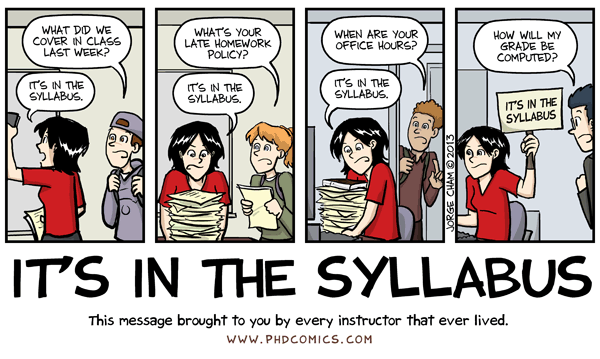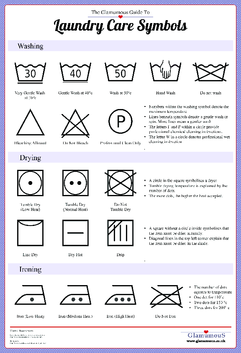As I've mentioned, one of the biggest (and most harrowing) differences between high school and college is being told what to do versus being told to figure it out.
My philosophy is that giving young adults information ahead of time to manage their academic, professional, financial, and personal needs will help them hit the ground running as either college freshmen or newly minted graduate students.
However, it's impossible to anticipate everything that might come up. So what do you do when you're a college student who needs to figure something out, and quickly?
My philosophy is that giving young adults information ahead of time to manage their academic, professional, financial, and personal needs will help them hit the ground running as either college freshmen or newly minted graduate students.
However, it's impossible to anticipate everything that might come up. So what do you do when you're a college student who needs to figure something out, and quickly?
What does that word mean?
Look it up in the dictionary and make a point of using it over the next couple of days to make sure you have a handle on its correct usage.
What does that term mean?
Does your professor keep referring to "fin de siècle" France? And you're thinking, what the heck does that mean? You have a couple of options. If it's the first time or two your instructor has mentioned it, raise your hand and ask. Trust me, if you're wondering, another student is too.
If you're pretty sure you're expected to know this by now consult your textbook's glossary, or even just good old Wikipedia. You'll learn it is the French term for "end of the century" and refers specifically to the late 19th century. It was also a broader sociocultural movement, so pay attention to the context your professor is using it in - is she referring to art, literature, a population's attitude?
What do I need to do to get an A on this assignment?
Read the assignment description. Read it again. Cross-check with the syllabus to see if there are any general instructions for assignments. Highlight any instructions about content, style, and format. For example, if it asks for 3 pages, make sure you write 3 pages, not 2 and a quarter.
If it specifies what content to address, make an outline noting where you are going to insert each of the points you need to hit.
When you are done with the assignment, review it with a critical eye and ask yourself if it meets all of the criteria.
And if you're still not sure, ask your professor or TA to meet about the assignment ahead of time, or schedule an appointment with the relevant tutor or student help center.
How do I find sources for this paper?
Go to the library. Go to the library. Go to the library.
By that, I mean get up and physically walk to the library. If you know what you are looking for, use the online database to look up books ahead of time and then track them down in the stacks. If you aren't sure what resources are available to you, schedule an appointment with the librarian who has specific expertise in the subject you are researching.
Be open to looking at a variety of materials - besides books, you can look at journal articles, microfilm or microfiche, film, catalogued photographs, or rare documents collections.
Look it up in the dictionary and make a point of using it over the next couple of days to make sure you have a handle on its correct usage.
What does that term mean?
Does your professor keep referring to "fin de siècle" France? And you're thinking, what the heck does that mean? You have a couple of options. If it's the first time or two your instructor has mentioned it, raise your hand and ask. Trust me, if you're wondering, another student is too.
If you're pretty sure you're expected to know this by now consult your textbook's glossary, or even just good old Wikipedia. You'll learn it is the French term for "end of the century" and refers specifically to the late 19th century. It was also a broader sociocultural movement, so pay attention to the context your professor is using it in - is she referring to art, literature, a population's attitude?
What do I need to do to get an A on this assignment?
Read the assignment description. Read it again. Cross-check with the syllabus to see if there are any general instructions for assignments. Highlight any instructions about content, style, and format. For example, if it asks for 3 pages, make sure you write 3 pages, not 2 and a quarter.
If it specifies what content to address, make an outline noting where you are going to insert each of the points you need to hit.
When you are done with the assignment, review it with a critical eye and ask yourself if it meets all of the criteria.
And if you're still not sure, ask your professor or TA to meet about the assignment ahead of time, or schedule an appointment with the relevant tutor or student help center.
How do I find sources for this paper?
Go to the library. Go to the library. Go to the library.
By that, I mean get up and physically walk to the library. If you know what you are looking for, use the online database to look up books ahead of time and then track them down in the stacks. If you aren't sure what resources are available to you, schedule an appointment with the librarian who has specific expertise in the subject you are researching.
Be open to looking at a variety of materials - besides books, you can look at journal articles, microfilm or microfiche, film, catalogued photographs, or rare documents collections.
How do I use Excel?
Google it, kiddo. Or YouTube it if you learn better from a video. You can watch an instructional video on anything - putting together a spreadsheet, using Photoshop, using a dining hall tray to sled, or folding a fitted sheet.
How do I do laundry?
Laundry is one of the 6 life skills I recommend you learn prior to going off to college. Consult your parent. Print a handy chart of laundry symbols and put it in your laundry basket. Take a second to read the machine's instructions, conveniently printed on the inside of the door.
Google it, kiddo. Or YouTube it if you learn better from a video. You can watch an instructional video on anything - putting together a spreadsheet, using Photoshop, using a dining hall tray to sled, or folding a fitted sheet.
How do I do laundry?
Laundry is one of the 6 life skills I recommend you learn prior to going off to college. Consult your parent. Print a handy chart of laundry symbols and put it in your laundry basket. Take a second to read the machine's instructions, conveniently printed on the inside of the door.
What am I going to do after college?
Go to your school's website. Look up "Career Center." Click on "Make an Appointment." Show up to the meeting with specific questions and a list of interests. Follow up on what the Career Coordinator advises you to do.
Meanwhile, reach out to your school's alumni group. Ask about opportunities for internships or to shadow someone who is in your prospective career.
Look up when your school is hosting its next career fair. Attend with resumes in hand and make a goal of speaking to at least three recruiters.
How can I handle this lethargy, anxiety, or sadness that seems to be negatively influencing my academic and personal life?
Totally normal and common for a college student. Don't be embarrassed. Call your health center and make an appointment with a doctor and / or counselor, depending on who you think is most applicable for your situation.
Get help managing your stress, whether it's through counseling, group therapy, medication, or simply getting a check-up and finding out if there are any underlying medical problems (such as a vitamin deficiency) that are causing your lethargy.
Go to your school's website. Look up "Career Center." Click on "Make an Appointment." Show up to the meeting with specific questions and a list of interests. Follow up on what the Career Coordinator advises you to do.
Meanwhile, reach out to your school's alumni group. Ask about opportunities for internships or to shadow someone who is in your prospective career.
Look up when your school is hosting its next career fair. Attend with resumes in hand and make a goal of speaking to at least three recruiters.
How can I handle this lethargy, anxiety, or sadness that seems to be negatively influencing my academic and personal life?
Totally normal and common for a college student. Don't be embarrassed. Call your health center and make an appointment with a doctor and / or counselor, depending on who you think is most applicable for your situation.
Get help managing your stress, whether it's through counseling, group therapy, medication, or simply getting a check-up and finding out if there are any underlying medical problems (such as a vitamin deficiency) that are causing your lethargy.
My point is that there are myriad ways to figure out any one of your questions:
And if you can't find the right information the first time, keep digging. Look at another book, re-word your search term, or ask the person you emailed to put you in touch with someone who can help you.
You are entirely capable of figuring out what it is that you don't already know. Take the initiative to learn how to do something instead of claiming "I don't know" if you want to be taken seriously and enjoy a real sense of autonomy as a higher education student.
- Google it
- Look it up on YouTube
- Go to the library
- Consult a book, textbook, scholarly journal, or library website
- Ask a person - a professor, advisor, librarian, career coordinator, doctor
- Read the syllabus
- Read the syllabus again
- Make an appointment and go in in person
- Send an email with your question
And if you can't find the right information the first time, keep digging. Look at another book, re-word your search term, or ask the person you emailed to put you in touch with someone who can help you.
You are entirely capable of figuring out what it is that you don't already know. Take the initiative to learn how to do something instead of claiming "I don't know" if you want to be taken seriously and enjoy a real sense of autonomy as a higher education student.





